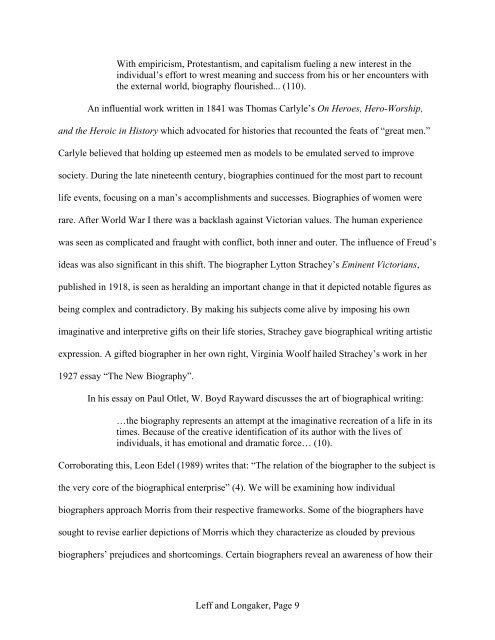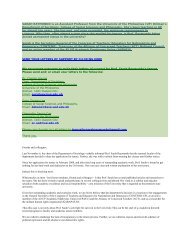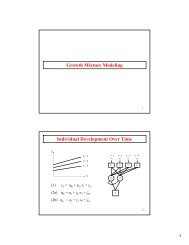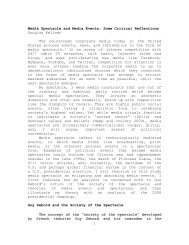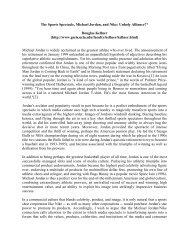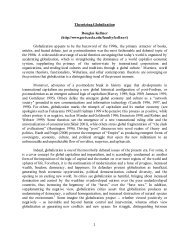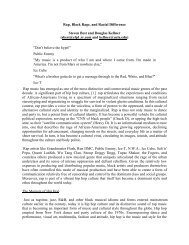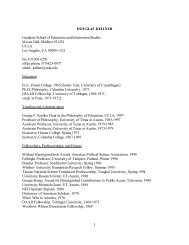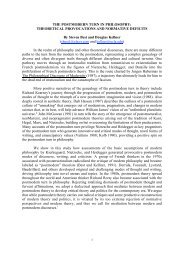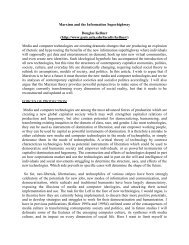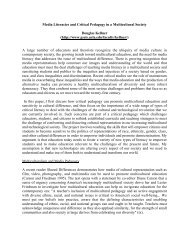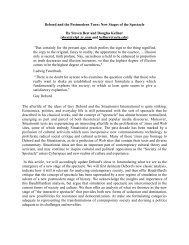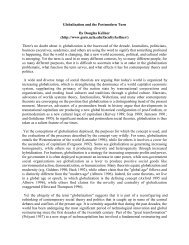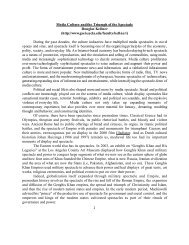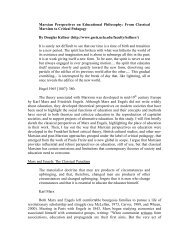Rachel Leff and Rachel Longaker IS281 Professor Maack ... - Ucla
Rachel Leff and Rachel Longaker IS281 Professor Maack ... - Ucla
Rachel Leff and Rachel Longaker IS281 Professor Maack ... - Ucla
Create successful ePaper yourself
Turn your PDF publications into a flip-book with our unique Google optimized e-Paper software.
With empiricism, Protestantism, <strong>and</strong> capitalism fueling a new interest in the<br />
individual’s effort to wrest meaning <strong>and</strong> success from his or her encounters with<br />
the external world, biography flourished... (110).<br />
An influential work written in 1841 was Thomas Carlyle’s On Heroes, Hero-Worship,<br />
<strong>and</strong> the Heroic in History which advocated for histories that recounted the feats of “great men.”<br />
Carlyle believed that holding up esteemed men as models to be emulated served to improve<br />
society. During the late nineteenth century, biographies continued for the most part to recount<br />
life events, focusing on a man’s accomplishments <strong>and</strong> successes. Biographies of women were<br />
rare. After World War I there was a backlash against Victorian values. The human experience<br />
was seen as complicated <strong>and</strong> fraught with conflict, both inner <strong>and</strong> outer. The influence of Freud’s<br />
ideas was also significant in this shift. The biographer Lytton Strachey’s Eminent Victorians,<br />
published in 1918, is seen as heralding an important change in that it depicted notable figures as<br />
being complex <strong>and</strong> contradictory. By making his subjects come alive by imposing his own<br />
imaginative <strong>and</strong> interpretive gifts on their life stories, Strachey gave biographical writing artistic<br />
expression. A gifted biographer in her own right, Virginia Woolf hailed Strachey’s work in her<br />
1927 essay “The New Biography”.<br />
In his essay on Paul Otlet, W. Boyd Rayward discusses the art of biographical writing:<br />
…the biography represents an attempt at the imaginative recreation of a life in its<br />
times. Because of the creative identification of its author with the lives of<br />
individuals, it has emotional <strong>and</strong> dramatic force… (10).<br />
Corroborating this, Leon Edel (1989) writes that: “The relation of the biographer to the subject is<br />
the very core of the biographical enterprise” (4). We will be examining how individual<br />
biographers approach Morris from their respective frameworks. Some of the biographers have<br />
sought to revise earlier depictions of Morris which they characterize as clouded by previous<br />
biographers’ prejudices <strong>and</strong> shortcomings. Certain biographers reveal an awareness of how their<br />
<strong>Leff</strong> <strong>and</strong> <strong>Longaker</strong>, Page 9


